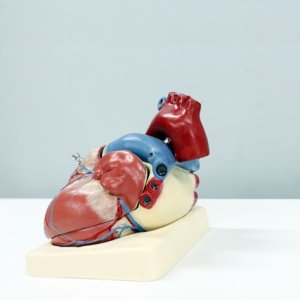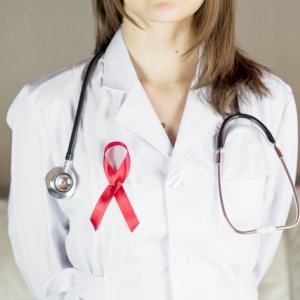Innovation, Access, Education are the Foundations of Healthcare

STORY INLINE POST
Q: BMS just celebrated its 75th anniversary in the country. What characterizes the presence of the company in Mexico?
A: We are proud to have a history of scientific excellence, helping to transform the health outcomes of patients with serious illnesses, such as cancer. BMS has made a commitment to research new innovative therapies, which is why in the last five years, BMS Mexico invested over US$60 million in R&D, a figure that we plan to continue maintaining.
Today, we have over 50 clinical studies in various therapeutic areas: oncology, immunology, cardiovascular, hematology and fibrosis, in which more than 300 patients are participating at 80 institutional and private research sites around the country.
Mexico is the subsidiary that leads the most important project in breast cancer research protocols; of the 10 authors of the protocol, three are Mexican researchers.
We are pioneers in immunotherapy, a class of drugs that harness the power of the immune system to treat cancer. Ten years after their approval, BMS drugs have helped 30 percent of cancer patients with various types of tumors and indications in metastatic stage worldwide. The number of patients that benefit from this type of treatment is significant, especially considering that in Mexico each year, over 195,000 people are diagnosed with this disease.
Q: The health sector has recently experienced a tech boom following the pandemic. How is BMS integrating tech to improve its internal performance?
A: Mexico is a clinical research hub for BMS to develop innovative or unique drugs for patients with unmet health needs, targeting diseases for which there are limited or no treatment options.
During the first few months of the COVID-19 pandemic, our R&D team was unable to access the institutions where clinical trials were taking place. This led us to significantly change the way we had been operating. We decided to integrate technology throughout the value chain by strengthening our approach with medical professionals through digital tools. We also moved our training programs to online modalities.
Internally, we began to refine our data and supply chain platforms and began working virtually, evolving to a hybrid format. The entire BMS team faced this challenge with resilience and we have learned to overcome crises while growing and providing comprehensive solutions to our patients. Digitization and collaborative work are definitely here to stay and will continue to be strategic pillars to continue promoting innovation in the company.
Q: How is BMS supporting its therapies with tech?
A: For several years, we have been working in the field of transnational medicine. This field integrates multidisciplinary teams from different research centers, universities and hospitals around the world and combines various disciplines, such as genomics, pharmacology, bioinformatics, AI, big data and state-of-the-art technological resources that allow the design of new drugs and techniques to treat, prevent and cure diseases.
With this, we are trying to identify the populations at risk and select the appropriate treatment for each based on the biology of their disease; potentially even before they start to show symptoms. This would avoid the frustration of trying multiple therapies before finding the one that offers the best results and would considerably reduce the associated costs for health systems, governments and patients.
Q: What advantages does telemedicine provide in terms of ensuring the correct prescription and use of drugs?
A: Undoubtedly, one of the most important advantages of telemedicine is the reduction of inequalities of access to health services caused by geographic location.
With the pandemic, this technology had a greater boom in private systems worldwide. However, public health systems and emerging markets still lack the conditions for this technology to have a greater impact on people’s quality of life. Among the main challenges is the limited availability of broadband internet in remote communities.
If the technology is available, this discipline offers multiple benefits: it reduces factors such as distance, time and travel costs of medical visits; offers fast and timely diagnosis and treatment; allows patients and doctors to have a second opinion to improve decision-making; and can help in the correct prescription and use of medications.
This last point is essential for chronic diseases such as cancer because patients cannot abandon, postpone or cut treatment. Telemedicine can also help them cope with symptoms or side effects, provide immediate attention, prescribe medication changes and connect them with other specialists, such as nutritionists, pharmacists, psychologists and palliative care providers, if needed.
Telemedicine will not completely replace face-to-face consultations. In cases such as the COVID-19 crisis, it enables doctors to provide patients a greater degree of security and convenience.
Q: BMS has a program for treatment adherence called Vamos Contigo. From this experience, what has been the biggest challenge to achieve treatment adherence in Mexico?
A: We are proud of our Patient Support Program, which would not be possible without the participation of the treating physician and the great team of BMS collaborators. Treatment adherence is fundamental and is not always well valued. Without correct adherence to the medical prescription, it is difficult to achieve the expected health results. Thus, poor treatment adherence is responsible for increases in morbidity and mortality, complications, hospital admissions, higher health costs and the dissatisfaction of patients and doctors.
Given that it is a multifactorial problem, the only way to improve treatment adherence is for the industry, the medical community, authorities, civil organizations and society to work together to create a culture of health that empowers patients. An effective intervention requires three basic aspects: education, communication and information.
Q: How can education play a role in boosting treatment adherence?
A: Health literacy allows patients to assume an active role in therapeutic decisions. But for it to work, it must focus on the needs of each patient, their context and situation. The quality of communication with the patient is also a key factor. It is essential that physicians actively listen to patients, consider their existing fears and help enhance their participation in self-care.
Information is power. In this sense, encouraging health promotion campaigns makes it possible to prevent diseases, increase diagnosis and provide early care.
Therapeutic adherence has the potential to reduce costs associated with illnesses and significantly improve the clinical condition of patients, which is what we all seek.
Q: How does your company integrate other actors of the industry to enhance the impact of your therapies?
A: To achieve a healthier world for present and future generations, we must work in alliance with all the actors that are part of the health ecosystem in the countries where we operate to generate solutions and resources that benefit people and society. As a leading biopharmaceutical company, partnership is a key priority for us and plays a critical role in our business strategy.
We seek to combine external science and innovative technologies with our internal capabilities and experience to not only evolve our transformative product portfolio, but to be trusted partners with the public and private sectors.
Q: Pharmaceutical companies often invest in pharmacoeconomic research for their therapies. How is your company considering this concept?
A: Pharmacoeconomics is a fundamental tool in the decision-making process of health interventions. The innovations that we bring in immunooncology merit carrying out cost-effectiveness studies that allow us to ensure clinical benefits for patients.
Thanks to innovative statistical models, we have been able to demonstrate the increase in overall survival and quality of life achieved with our immunotherapies in the long term, which was previously unthinkable in patients with difficult-to-treat tumors, such as melanoma or advanced stage lung cancer.
Q: How could the pharma sector be an ally for prevention instead of correction?
A: The economic burden of non-communicable diseases, such as diabetes, cardiovascular problems, cancer and even post-COVID-19 complications, is very high for patients, health systems and country economies. Hence, we must invest in more and better preventive medicine and primary care, without neglecting clinical research, to offer more and better medicines that save lives.
The reconfiguration of healthcare requires putting people at the center. To achieve this, it is necessary to carry out coordinated actions between industry, government, healthcare providers, health professionals, patients and society in general. We all want a country with better health conditions, increasing productivity and competitiveness. Undoubtedly, public-private participation is key in the design of comprehensive and quality care models that aim to provide early diagnosis and timely and personalized treatment.
At BMS, we are working in three ways. First, we contribute to carrying out health promotion campaigns focused on preventing diseases, increasing diagnosis and promoting early care. Second, we work closely with health professionals, promoting continuing medical education. Third, we carry out training with civil organizations to help patients and their families to increase their knowledge about certain diseases and help them have tools that allow them to better control their health.
Bristol Myers Squibb is a global biopharmaceutical company focused on discovering, developing and delivering innovative medicines for patients with serious diseases. The company focuses on oncology, cardiovascular, immunoscience, fibrosis and other therapies.








 By Miriam Bello | Senior Journalist and Industry Analyst -
Fri, 03/11/2022 - 12:25
By Miriam Bello | Senior Journalist and Industry Analyst -
Fri, 03/11/2022 - 12:25
















